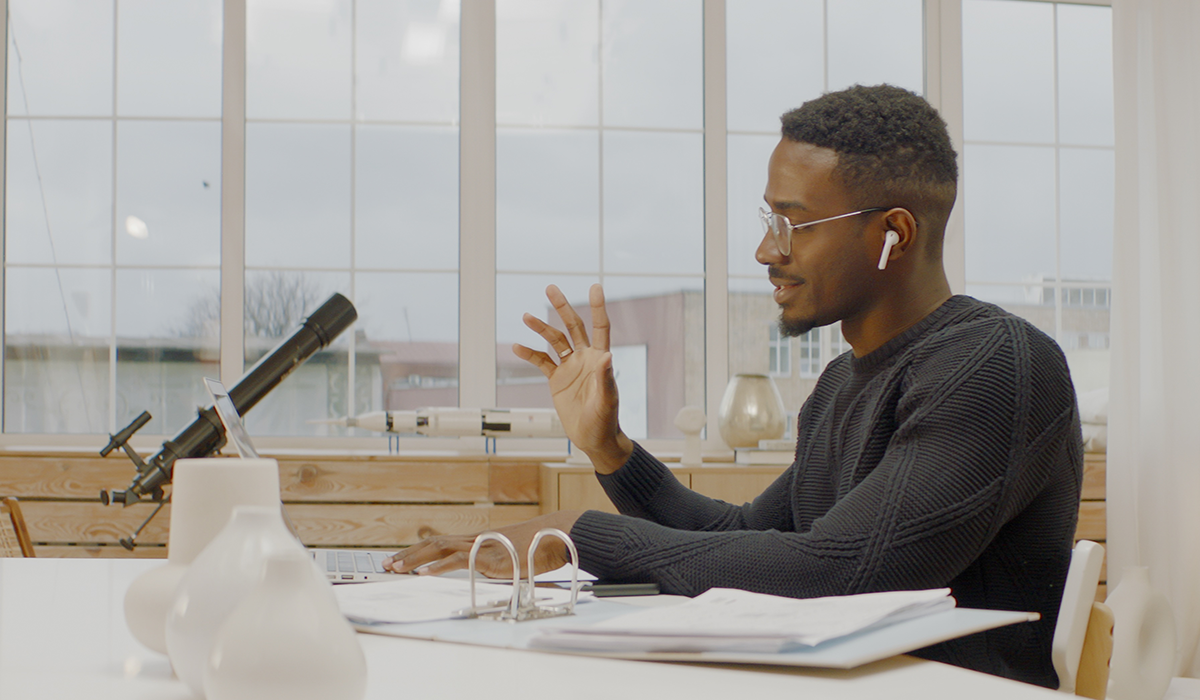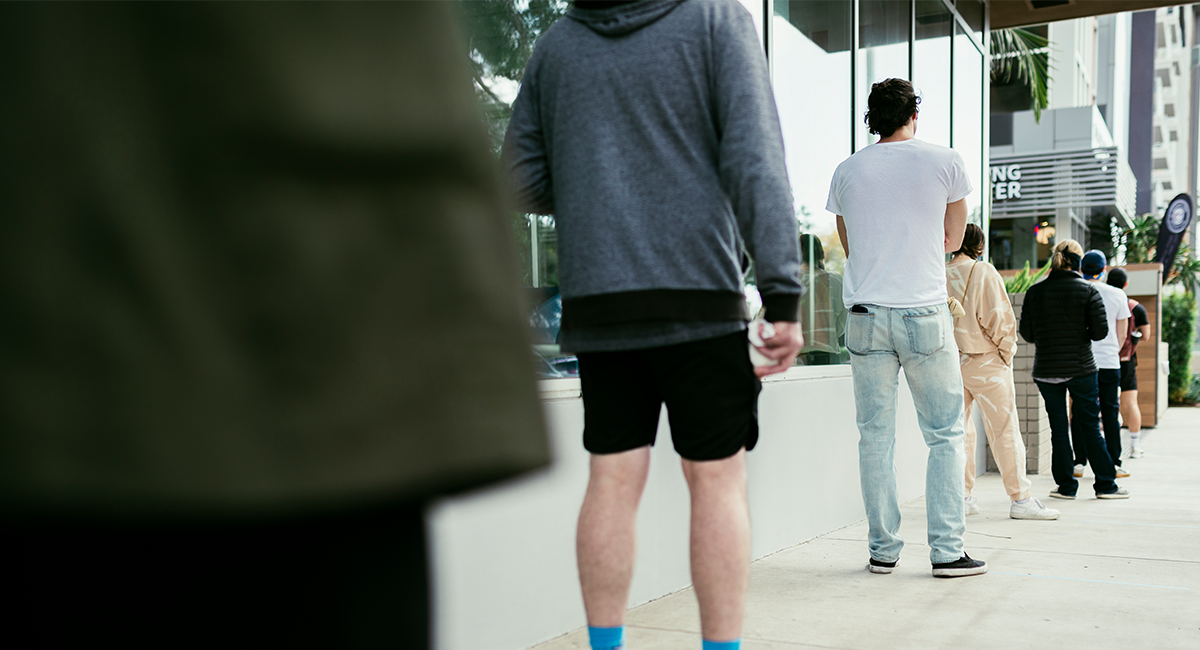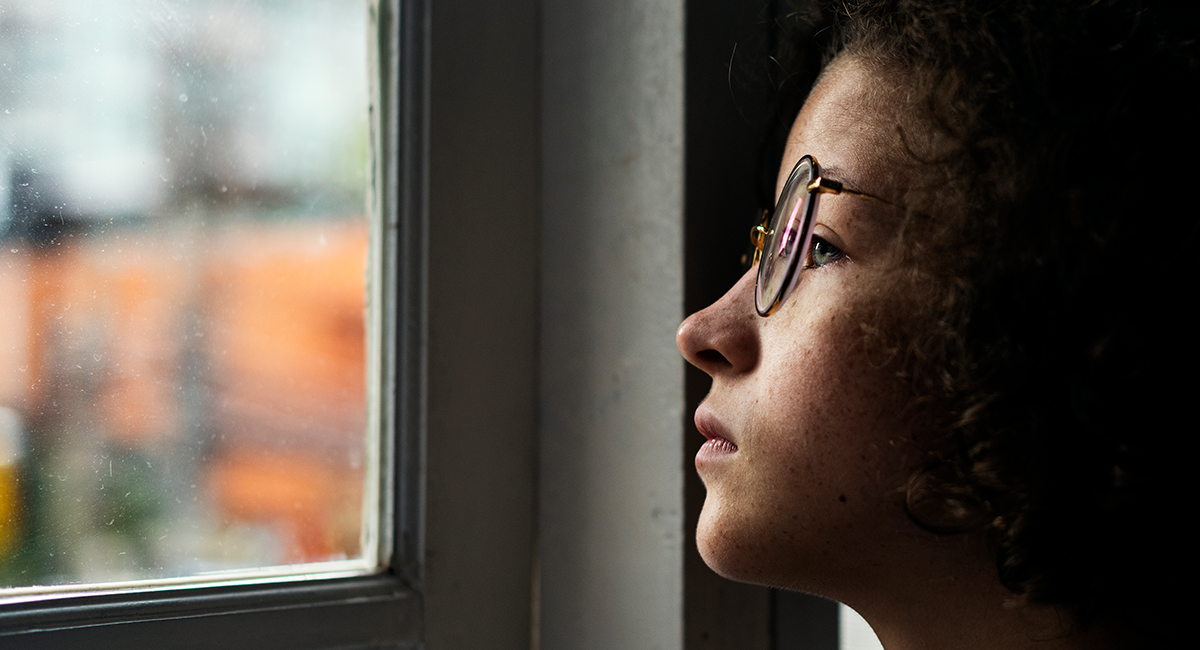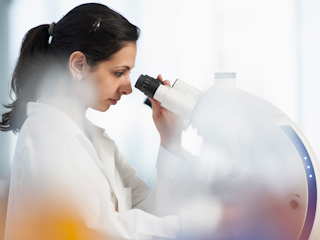Why Our Lockdown Experience Matters
We are fundamentally subjective rather than objective. Often analytical modelling of human behaviour is rendered meaningless. We are as irrational as we are reasonable. The human experience stretches across complex polarisations like self and the other, individual and society, nature and culture. It is hard to measure and has neither an exact starting point nor an end.
How we experience normality is ambiguous by nature. Most people associate normality with feeling safe and familiar. The Latin root of the word—normalis— means "in conformity with rule, common standards or an established order." The fear of not being normal, on the other hand, can trigger a deep sense of powerlessness and vulnerability. When confronted with profound change, we tend to respond with fear and hyper-alertness. We experience a liminal state of being that pushes our boundaries and stretches our belief systems. We are, in essence, challenged to rethink what we consider normal.  What we know is that every one of us has experienced something intensely unique and deeply personal during the pandemic lock-down. On an individual level, the experience will most certainly shape our future in the memories we carry with us, in the way we intend to conduct ourselves and how we eventually will perceive our place in the world. On a societal level, the sum of our individual experiences will weave together a robust collective response—a mass-liminal reaction to living through the pandemic.
What we know is that every one of us has experienced something intensely unique and deeply personal during the pandemic lock-down. On an individual level, the experience will most certainly shape our future in the memories we carry with us, in the way we intend to conduct ourselves and how we eventually will perceive our place in the world. On a societal level, the sum of our individual experiences will weave together a robust collective response—a mass-liminal reaction to living through the pandemic.
The Covid-19 Experience
Between March and May 2020, Valtech conducted a meta-analysis of 165 selected articles published across 30 global media outlets, representing a wide range of expert views from diverse fields such as economics, sociology, anthropology, medicine, history and philosophy. Our objective was to identify early patterns of a new normal in the collective response to the pandemic. The study revealed that COVID-19 set an unprecedented premise for the human condition and triggered a fundamental shift in perspective from macro to micro—from nations and governments to individuals and communities. As philosopher, anthropologist and sociologist Bruno Latour argues, we have proven that it is possible, in a few weeks, to put an economic system on hold everywhere in the world. A system that we believed was impossible to slow down or redirect.
The first-wave experience: Absorbation and reflection
The first-wave experience of the imposed isolation has offered us time-out not only to absorb the immediate danger of the outbreak but also to reflect more deeply on what we are attached to and what we are ready to give up as human beings. We have had an opportunity to contemplate just how vital coexistence is in our lives. We have stepped away for a brief moment from performing in the world, to prioritise our being in the world. We have entered a deconstruction phase that involves letting go of obsolete behaviours and ways of thinking—initially one by one and then collectively in larger numbers.
 The second-wave experience: Systemic disbelief
The second-wave experience: Systemic disbelief
The second-wave experience is one of systemic disbelief. When a crisis sets in, people traditionally look for guidance from the systems that uphold society be it governments, corporations or religious institutions. These load-bearing pillars typically respond by reassuring the public that things are under control and that they will use their power to deal with the situation at hand as long as everyone continues living their everyday lives. COVID-19 has been different in that sense. The level of systemic powerlessness and unpreparedness is displayed in the open for everyone to see. People in positions of power have had to acknowledge that they are making up the route as they go along and that many questions will remain unanswered in the short term. The first message communicated was: We don't know the origin or the extent of this virus. We don't have a vaccine or any treatment available. To preserve the system, each individual must stop their everyday activities and isolate to contain the virus. Subsequently, the overwhelming collective response has been to question societies' long-term capacity to sustain its inhabitants.
The third-wave experience: The reveal of disparate abilities to prepare and respond
The third-wave experience is that the economic and social implications of COVID-19 reveal widely disparate abilities to prepare and respond. The strong are more likely to stay healthy; the weak are more likely to succumb. Lower-skilled workers are more prone to job losses or a reduction in working hours. The lowest income quintiles are among the most disadvantaged groups in terms of adequate access to healthcare. People with disabilities and stigma are at increased risk of developing severe diseases or emotional distress. The effect of social determinants is super-amplified, and there is an imminent risk that it will lead to mass-exhaustion in large parts of the population.
Best- and Worst-case Scenarios
Our study reveals that mass-exhaustion as a best-case is likely to give birth to social movements that will question the fabrics of society. Population groups will become more system-independent, and the communities they inhabit will proactively respond to their bottom-up requirements. The new normal will take shape in the form of autonomous beings as free-economic agents, as treatment authorities, as health philanthropists and as consumers that demand to enjoy the highest attainable level of societal togetherness, quality of life and environmental coexistence. Autonomous beings will repurpose their beliefs, perspectives, actions and outcomes based on the autonomous footprint of others and by leaving an impression for others to repurpose.
Subsequently, it will create a massive pull effect that will stretch the accountability of welfare models, political and educational systems as well as the corporate world. With self-accountability as a guiding principle, autonomous beings will ask how economic models, empowered technology and personalised data can enable them to live smarter, healthier and more meaningful lives.  As a worst-case, the pandemic may cause widespread civil unrest in many parts of the world. According to The Institute for Economics & Peace, we find ourselves at a critical juncture. The economic impact of COVID-19 is likely to magnify tensions by increasing unemployment, widening inequality and worsening labour conditions to such a degree that it will create alienation from the political system. Ultimately, it can create a domino effect, where protests driven by the pandemic's fallout are likely to inflame other social movements such as Black Lives Matters.
As a worst-case, the pandemic may cause widespread civil unrest in many parts of the world. According to The Institute for Economics & Peace, we find ourselves at a critical juncture. The economic impact of COVID-19 is likely to magnify tensions by increasing unemployment, widening inequality and worsening labour conditions to such a degree that it will create alienation from the political system. Ultimately, it can create a domino effect, where protests driven by the pandemic's fallout are likely to inflame other social movements such as Black Lives Matters.
Covid-19 as an Amplifier of a Similar NCD Pattern
Does this sound familiar? If we take a closer look at how the prevalence of non-communicable diseases (NCDs) has developed over the last decade, a similar pattern is emerging. More people live for extended periods with multiple chronic conditions as a result of behavioural, physiological, environmental, and genetic factors. A severe state of disease that will increasingly isolate people and trigger more profound reflections about what we value most and what we are ready to give up.
The National Health Service (NHS) in the United Kingdom has a declared ambition to reform healthcare by building a social movement that can shift power from the first and second line of care to patients and citizens. The overall purpose is to strengthen communities, improve health and help mitigate rising demands on healthcare services. As a direct response to the increased disease burden associated with NCDs, several longstanding strains on the healthcare system are now on full display for all to see. By spending £10bn on outpatients and a similar sum on community health, the political system is transferring accountability and point-of-care (PoC) out of the system.
Rapid demographic, socio-cultural and economic transitions are driving a dramatic surge in the number of people impacted by NCDs. Even the most advanced preventive, diagnostic and treatment schemes become meaningless and ineffective when people struggle with social isolation, loss of jobs, income inequality, poor nutrition and pollution. The social determinants of health not only undermine positive outcomes for all but also swamp the providers of healthcare services.
Repurposing the Covid-19 Experience to Defeat NCDs
A little more than half a year after the outbreak, over 1 million people have died from COVID-19 globally. Of a total of 56.9 million global deaths in 2016, 40.5 million, or 71%, were caused by NCDs. The pandemic is a catalyst for the redesign and regeneration of the human impact on the Earth. It is also a super-amplifier of the underlying transformations of the health landscape that were already on their way. The massive pull effect forged by the first, second and third wave of the pandemic magnifies a shift in perspective that will profoundly impact healthcare in general. As the landscape is erupting from underneath, commercial players must rethink their role and the responsibilities they are willing to embrace.
It will take time before we can grasp the full extent of the pandemic impact on people with multiple non-communicable diseases. We know that people with NCDs are more vulnerable to becoming critically ill with COVID-19, and many have limited access to the necessary treatment and care. But maybe there is a silver lining in these difficult circumstances? What if this unprecedented premise for the human condition and the fundamental shift from macro to micro can enable us to build a healthier world together? What if we can learn how to better defeat NCDs from repurposing the COVID-19 experience?  According to a recent editorial in the Lancet, COVID-19 has shown that many of the tools required for fighting a pandemic are also those needed to fight NCDs: disease surveillance, a robust civil society, clear communication and equitable access to resilient universal healthcare systems. The Director-General of WHO has stated that the " ...pandemic has brought out the best—and worst—of humanity. This contagion exposes the fault lines, inequalities, injustices and contradictions of our modern world."
According to a recent editorial in the Lancet, COVID-19 has shown that many of the tools required for fighting a pandemic are also those needed to fight NCDs: disease surveillance, a robust civil society, clear communication and equitable access to resilient universal healthcare systems. The Director-General of WHO has stated that the " ...pandemic has brought out the best—and worst—of humanity. This contagion exposes the fault lines, inequalities, injustices and contradictions of our modern world."
There is no better place to start by understanding how the COVID-19 experience can be repurposed by design to not only defeat NDCs, but also more long-term eradicate health inequality. Health providers must engage in accountable coalitions, providing unique and personal experiences that produce positive health outcomes at scale. The mass-liminal reaction to the pandemic gives us a unique opportunity to transform our modern state of vulnerability into a healing power that can regenerate our underlying exhaustion and promote coexistence.
Interested in more perspectives on the health landscape? Read the other articles in the series:
Where to Play Next in Healthcare
Introducing the Human-2-Business framework (coming soon)







